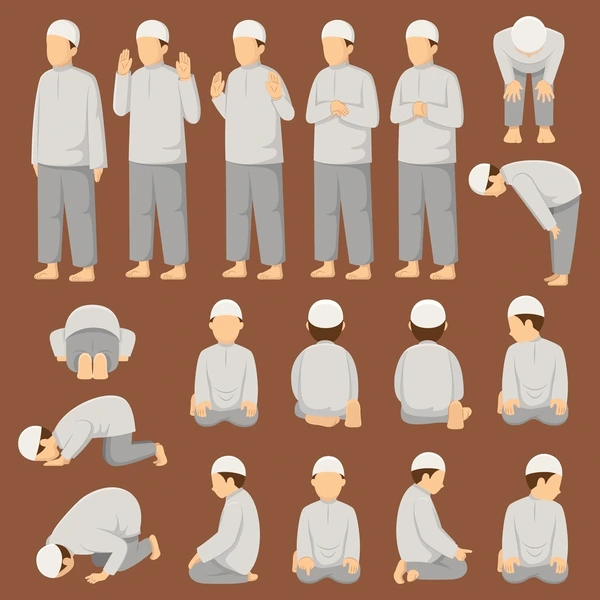Isha prayer, the night prayer, is the fifth obligatory prayer in Islam. Muslims perform it daily after sunset. It holds great significance in their daily life. To perform Isha prayers, start with wudu and make the niyyat for 4 rak’ahs Isha Namaz. Say “Allahu Akbar,” then recite Surah Al-Fatiha and Surah Ikhlas, followed by ruku and two sujoods.
Repeat this for the second rak’ah, then recite Tashahhud. In the third rak’ats, follow the same steps. In the last rakat, after sujood recite Tashahhud, Salawat, and conclude Isha Salah with tasleem by saying “Assalamu Alaikum wa Rahmatullah” to both sides.
Isha prayer is performed the same way as other four-rakat prayers. It is the four rakat of the obligatory (fard) prayer. Isha sunnah prayers consist of four and two rak’ahs of sunnah, Nafl prayers and three rak’ahs of witr prayer for additional blessings.



